Dialogue with Wang Xiaolu: Navigating AI and Overseas Expansion Amidst Global Transformation
![]() 11/17 2025
11/17 2025
![]() 514
514
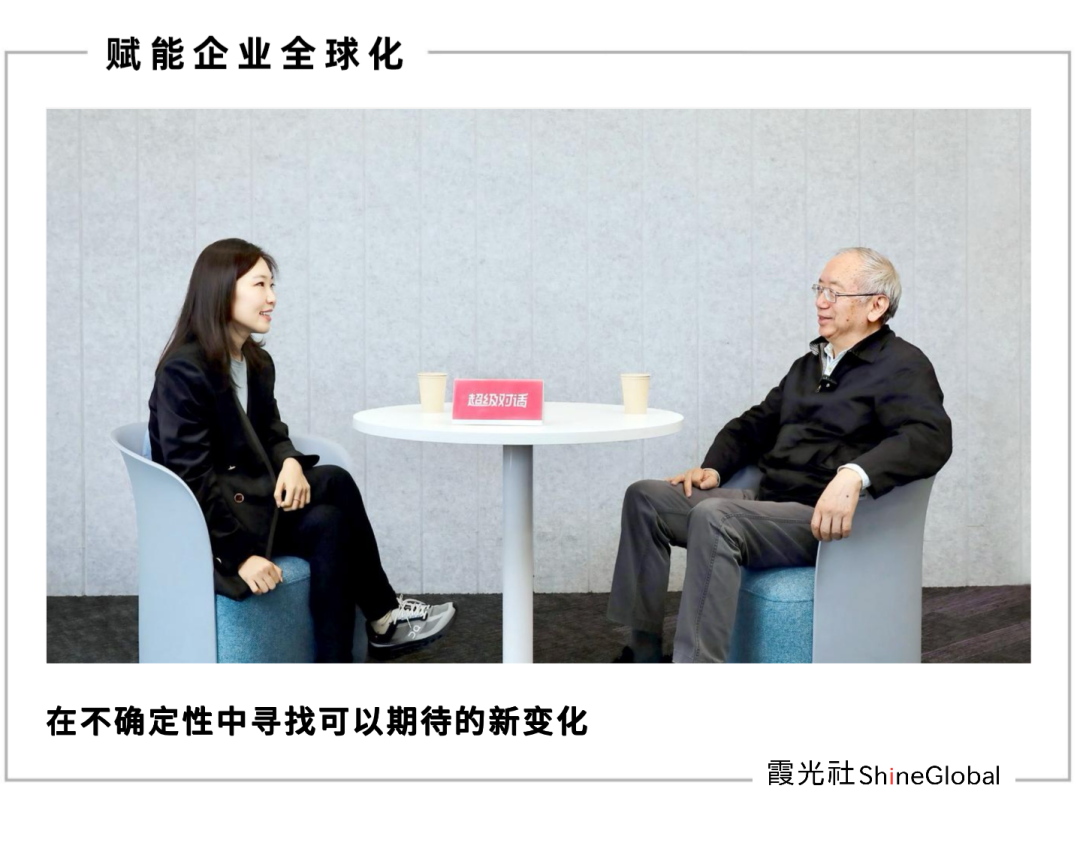
Author|Vivi
On November 10, the tariff adjustments between China and the United States officially came into effect, marking a pivotal shift in global trade dynamics this month.
On one front, the United States reduced the 'fentanyl tariff' on Chinese goods by 10% and extended the suspension of higher reciprocal tariffs on China until November 10, 2026, maintaining the current 10% tariff rate during this period. On the other hand, China reciprocated by halting additional tariffs on select U.S. goods, including cotton (15%) and soybeans (10%), among others. Additionally, starting from the same date, China will continue to suspend the 24% additional tariff rate on U.S. goods for another year, keeping the tariff rate at 10%.
The implementation of key outcomes from China-U.S. economic and trade consultations is undeniably positive news for businesses looking to expand overseas.
However, when considering a broader geographical spectrum, it becomes apparent that localized trade protectionism persists. Just recently, on November 13 of this year, EU member states reached a consensus to abolish the duty-free policy for small parcels valued below 150 euros. For an extended period, small parcels below this value threshold enjoyed duty-free entry into the EU, but this convenient avenue is now closing. Dubbed the 'new tax policy targeting Chinese e-commerce,' this measure will be implemented earlier than initially planned, shifting from 2028 to 2026.
This blend of positive and negative developments underscores the extreme uncertainty and complex landscape of global commercial trade. For Chinese enterprises venturing into overseas markets, the question arises: How can they maintain composure and direction amidst such turmoil? Where will the new drivers of growth emerge from? This challenge extends beyond enterprises; it is also a crucial consideration for the nation and its government.
This time, Xiaguang Society invited Wang Xiaolu, a renowned economist, Deputy Director of the National Economic Research Institute under the China Reform Foundation, and Executive Director of the China Society of Economic Reform, to engage in an in-depth dialogue on topics such as global trade changes, government service capabilities, and enhancing innovation capabilities.
During the dialogue, Wang Xiaolu emphasized that abundant opportunities still exist overseas, with the key being to identify and seize one's own niche. In this endeavor, competition, cooperation, and mutually beneficial outcomes should be the guiding principles for Chinese enterprises going global. Despite some positive news in global trade, enterprises must still brace for long-term challenges and diversify their market focus.
Meanwhile, Chinese enterprises have reached a stage where enhancing innovation capabilities is paramount, with AI being the most crucial driver. In the future, AI may automate 99% of human tasks, creating tremendous value and inevitably transforming the employment and social security systems. The government's role is to ensure robust institutional frameworks are in place.

Vivi: Hello everyone, and welcome to Super Dialogue. I'm Vivi from Xiaguang Society. Today, we are delighted to have Professor Wang Xiaolu, a renowned economic scholar, with us. We will discuss where our new growth drivers lie amidst global economic restructuring and how enterprises can navigate the new globalization landscape. Professor Wang, in recent years, the global economy has shown signs of cooling. From your long-term observations, why has this happened? Is it due to structural adjustments or short-term cyclical changes?
Wang Xiaolu: From a global perspective, I believe there has been a trend towards de-globalization in recent years, with many countries turning towards trade protectionism and engaging in trade wars, erecting barriers. Such protectionist measures stem from the fact that during globalization, economies compete, creating winners and losers. In the face of competition, some countries may adopt de-globalization policies, increasing trade, economic cooperation, and interconnectedness difficulties among nations.
Vivi: For enterprises, if this is a long-term trend, what is their way forward?
Wang Xiaolu: Despite the de-globalization trend and recent U.S. policies imposing high tariff barriers, it does not mean all opportunities have vanished. Abundant opportunities still exist, and the key is to identify and seize one's own niche. You need to leverage your strengths and adapt to the situations in various countries, formulating your foreign trade or overseas expansion strategies based on the unique conditions in each country.
Vivi: It seems that for many enterprises expanding overseas, this is a form of re-growth, a forced re-evaluation and re-rooting in the current environment. Previously, it might have been just about shipping goods, but now it involves localizing, complying with regulations, and adapting to policy changes. Earlier, we mentioned the global economy is cooling down, but domestically, there's a hot trend—everyone is enthusiastic about going overseas, with overseas expansion becoming extremely popular. Given the challenging environment, how do you think they can thrive better?
Wang Xiaolu: In recent decades, China's economic development has been rapid. At the beginning of reform and opening up, China's per capita GDP was only $200, but now it has reached $12,000, a significant increase. During this development, many enterprises, both new and old, have adapted to the domestic environment. However, if we consider the world as a big village and ourselves as villagers, we cannot avoid interacting with others. We cannot just close our doors and focus solely on ourselves, as the space is limited. Considering the world economy as a whole, its scale and space are many times larger than the domestic market, representing a vast opportunity.
Most enterprises are still unfamiliar with foreign markets. When entering a country, understanding the local legal system, business environment, customs, market size, consumer preferences, and industrial structure is crucial.
I believe this is a process where overseas-expanding enterprises need to adapt to local laws, regulations, and business environments. For example, some countries have stringent environmental protection requirements, while others have strict labor protection laws, like Mexico. Practices common in China may not be applicable or suitable locally and need modification. Neglecting or not studying these issues may lead to violating local laws upon arrival, making it difficult to continue operating. In cases without explicit local laws, practices common in China may not align with local customs and may cause disgust or misunderstanding, requiring attention and research.
Vivi: Yes. Previously, it was said that once Chinese enterprises arrive, they would outcompete local industries due to our diligence, intelligence, willingness to learn, and ability to endure hardship. This is also a reason for de-globalization, as Chinese enterprises are not particularly welcome in this environment.
Wang Xiaolu: That's a valid point. While having a competitive advantage locally, outcompeting all local enterprises may lead to an unwelcome situation.
Vivi: Striking a balance is indeed challenging.
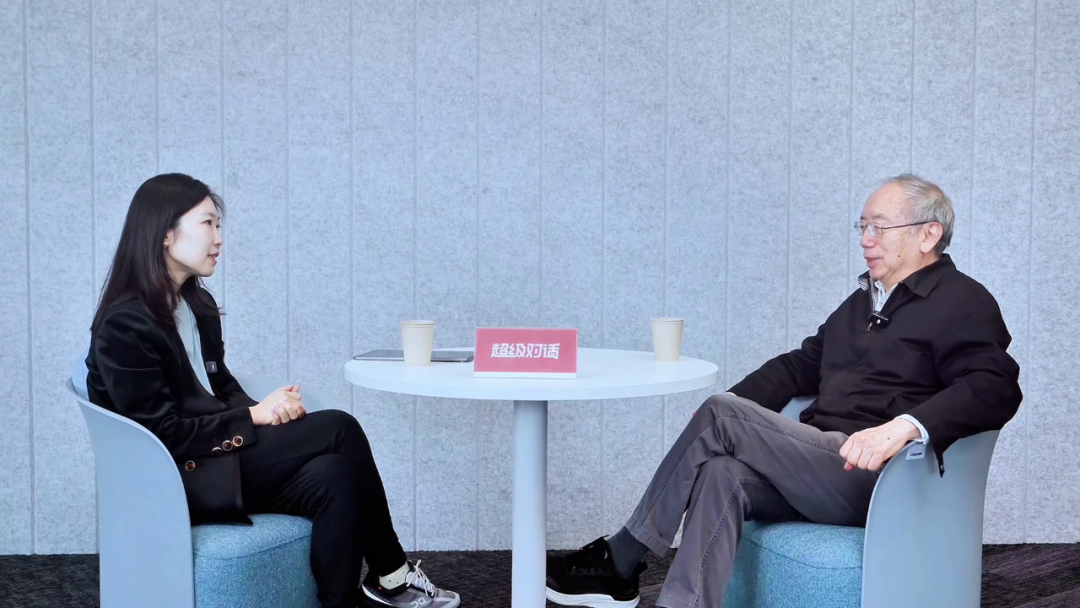
Wang Xiaolu: I can only say that as an enterprise investing overseas, you should strive to consider these issues and leave room for local enterprises to survive. Transform competition into a situation that is both competitive and cooperative, allowing them to participate and profit as well, creating a win-win scenario.
That is, I develop, and you also develop; I have a survival space, and you also have a survival space. We each leverage our strengths and can cooperate on certain issues, which may greatly alleviate the problem.
Vivi: It's about nurturing the local environment and adopting a long-term perspective. Last time, I spoke with Japanese entrepreneurs, and they said that if we all sell tofu on this street, the prices will definitely be the same. If he sells this type of tofu, we might sell tofu skin instead. People instinctively seek product differentiation. In Japan, their approach leans more towards differentiation, avoiding price wars. They are not welcoming of such practices. Previously, you mentioned that Chinese enterprises should maintain close ties with the world, go overseas, and boldly move forward without looking back. Overall, you seem quite optimistic about this (overseas expansion). Why are you so optimistic?
Wang Xiaolu: After our reform and opening up, we experienced over 30 years of rapid growth. The domestic market has been expanding, and domestic industries have been growing and strengthening, with a more comprehensive industrial system and better inter-industry coordination. This has provided Chinese enterprises with significant competitiveness. However, we have previously focused on domestic development and have limited understanding or insufficient knowledge about exploring overseas markets, seeking overseas investment opportunities, and operating abroad.
On the other hand, we are indeed facing some difficulties domestically, or as everyone says, we are in an 'involution' phase, competing on price and driving prices down. How did this situation arise? On one hand, domestic industries have grown, production capacity has increased, and efficiency has improved, but the market space has become insufficient. We have particularly focused on rapid development through substantial investments, but the expansion of the consumer market has not kept pace. After capacity expansion, there are not enough buyers for the products, leading to oversupply and widespread overcapacity. I have invested in building many factories, but these factories do not have enough orders, significantly reducing the efficiency of my investment or even resulting in losses, making the investment not worthwhile.
This is a problem we face domestically. Everyone is worried about selling their products, so they engage in fierce price wars, indicating underlying issues. Our country's consumption rate—the proportion of final consumption in GDP—has been around 56% in recent years, but the general situation worldwide is probably between 70% and 80%. I believe that domestic structural adjustments are needed to promote more balanced development, especially to address the issue of insufficient consumption. We should not always focus on how to drive economic growth this year or next year by encouraging investment. Pursuing investment blindly can lead to excessive investment. Macroeconomic policies should also consider longer-term perspectives to guide the Chinese economy towards healthier and more stable long-term development.
Vivi: Yes, we just discussed the entire logic behind 'involution.' Now, a new popular term has emerged—'external involution,' where domestic supply and demand issues have driven competition overseas, turning it into external involution.
Wang Xiaolu: This external involution is also problematic. If there is no differentiation and everyone produces the same thing, and we start competing in the same overseas market before even finishing competing domestically, it's not a good situation. Seeking differentiated development and not always thinking about producing the same thing as others may be beneficial for everyone's development.
Vivi: Fortunately, I notice that people are starting to pay more attention to localization and seeking differentiation locally, such as understanding what local consumers really like instead of just copying domestic practices. This has led to some innovations, including Chinese robots. Robots are not just bipedal or quadrupedal; there are various types, such as wall-climbing robots and wall-repairing robots. I was quite impressed when I attended WAIC this year. At German robotics exhibitions, there were only a couple of robotics companies exhibiting, but domestically, there were numerous companies showcasing robots for various scenarios. I believe that with our supply chain cost advantages and innovation capabilities, there may be some positive changes. Another piece of good news is that I saw the U.S. Senate vote to terminate the global tariff policy. How do you view this change? Will the situation ease?
Wang Xiaolu: I feel that this is certainly a positive development if the United States can promptly withdraw from such policies. However, since detailed reports are not yet available, it's unclear what exactly was said and to what extent it can be implemented. We'll have to wait and see. I don't believe that Trump's high tariff policies will completely disappear and revert to the previous state. Even before Trump took office, during the Biden administration, there were still trade protection measures and various investment restrictions, particularly unfriendly policies towards China. So, we'll have to observe the situation.
However, in the long run, I believe such policies harm both others and the United States itself. Currently, inflation in the United States is already a significant issue. Although the data may not reflect it obviously, many people living in the United States tell me that prices have risen sharply, causing great harm to ordinary people and also negatively impacting many U.S. enterprises. This is because importing raw materials and components from overseas has become more expensive and difficult, ultimately harming the United States itself.
I believe that reflection and correction of such policies are inevitable, but we should not expect them to be completely resolved soon.
Vivi: It seems like this situation will remain the norm in the short term. If that's the case, how can enterprises expanding overseas or those developing domestically find new growth opportunities? It's already tough for local (domestic) U.S. enterprises, so it must be equally challenging for us.
Wang Xiaolu: Absolutely. I believe that, first and foremost, you need to brace yourself for long-term challenges and not expect swift improvements. It might not be as straightforward as we hope. On the flip side, the world is vast and full of possibilities. If the U.S. market is out of reach or proving difficult, you can explore other markets like Europe, Asia, Africa, and Latin America.
Vivi: The world is indeed a global village, offering a multitude of destinations.
Wang Xiaolu: Precisely, but this village has regions at varying stages of development. You might have excess production capacity domestically, struggling to sell your products, while in some other regions, your products could be in high demand. By seeking out these regions, you can carve out your own development space. Moreover, you shouldn't remain stagnant. Don't just replicate your domestic products when venturing abroad. You need to adapt to the foreign market environment, perhaps by modifying your products or developing new ones. These adaptations could open up new opportunities for you.
Vivi: We've seen products like (overseas-market-oriented) pool-cleaning robots and snow-removal robots, which gained immense popularity last year and continue to do so this year, yet they're rarely used domestically. The same goes for golf carts—all manufactured by Chinese companies. These entrepreneurs spotted opportunities in overseas markets. Recently, an AI hardware device that attaches to the back of a smartphone for recording and note-taking has seen exceptional sales, particularly in Japan. Initially, I thought the U.S. would be its primary market, but it's performed surprisingly well in Japan and is now gaining traction in Latin America—all Chinese-made products.
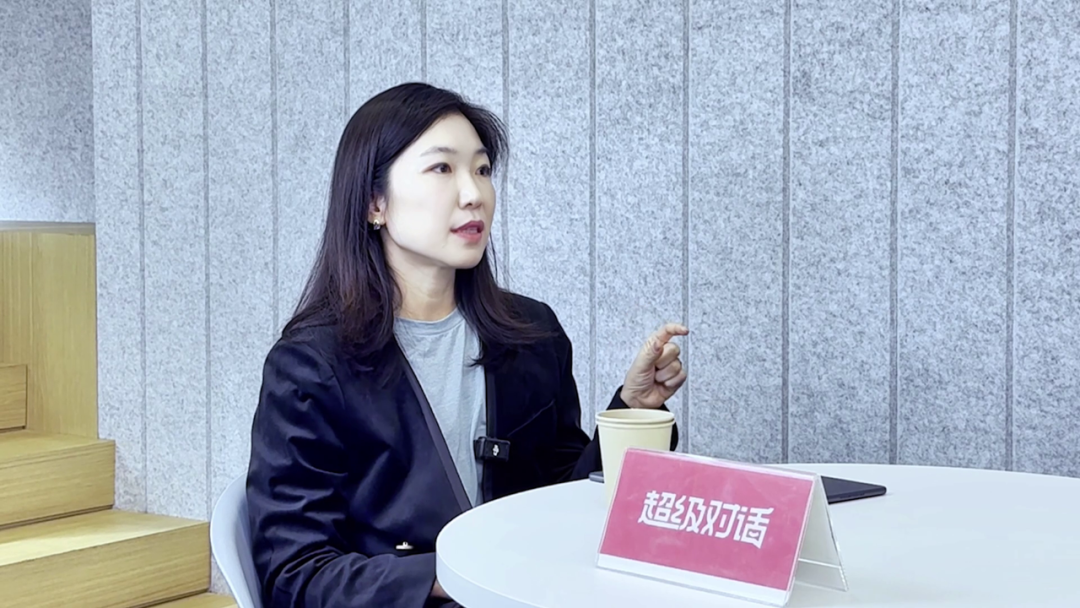
Wang Xiaolu: Therefore, it's crucial to research and adapt to overseas markets, with a greater emphasis on R&D. Develop new technologies and products based on market needs or enhance existing ones to cater to diverse consumer demands. This way, your products will have better market prospects.

Vivi: China's innovation capacity is robust, as evidenced by the recent success of DeepSeek and DJI's global influence. People now acknowledge that Chinese products are of high quality, not inferior. Previously, I felt Chinese companies were at a disadvantage globally, but confidence in venturing abroad has grown. However, when facing issues like trade policy changes or tariffs, the government steps in to negotiate resolutions. From a broader perspective, what better advice or support can the government offer to help companies 'go global' more steadily?
Wang Xiaolu: Indeed, the government has a significant role to play in this regard. Facing the trend of companies going abroad, it's not just about granting permissions but providing services to assist them in exploring overseas markets and investment opportunities. For instance, offering market information and consultancy, legal advice, and assistance in safeguarding their legitimate rights and interests when encountering legal issues abroad. Some companies may be unfamiliar with these processes, so the government could conduct more research to help them protect their rights reasonably. These are all areas where the government can make a meaningful contribution.
Vivi: Absolutely, I've seen many provinces and cities organizing groups to take companies abroad. In Jeddah, Saudi Arabia, I witnessed the Shandong government leading over 100 companies to engage with local authorities, which I believe is a commendable initiative.
Wang Xiaolu: Moving forward, we should consider more. It's not just about taking companies abroad for visits but understanding the challenges they face overseas and assisting them in overcoming difficulties with better services.
Vivi: During a previous conversation with Teacher Lin Xueping, he mentioned that many Japanese companies overseas focus on boosting their Gross National Product (GNP) by providing excellent local services, such as establishing Japanese schools, including one in Beijing. In contrast, Chinese companies often operate independently abroad.
Wang Xiaolu: That's an insightful example. We should reflect on how foreign investors behave when they come to us. Many Japanese companies in China have set up supporting facilities, including Japanese schools for their children, creating a complete ecosystem. We can learn from these experiences and consider how to support Chinese companies overseas with similar services and infrastructure to facilitate their development.

Vivi: We've extensively discussed globalization. If you were to summarize the future of globalization in three words, what would they be?
Wang Xiaolu: Competition, cooperation, and win-win outcomes.
Competition is inevitable as we operate in a market environment where superior performance leads to faster growth. Inefficient, high-cost, or poorly managed enterprises will naturally be phased out, which is the driving force behind progress. Without competition, there would be no such progress or efficiency improvements.
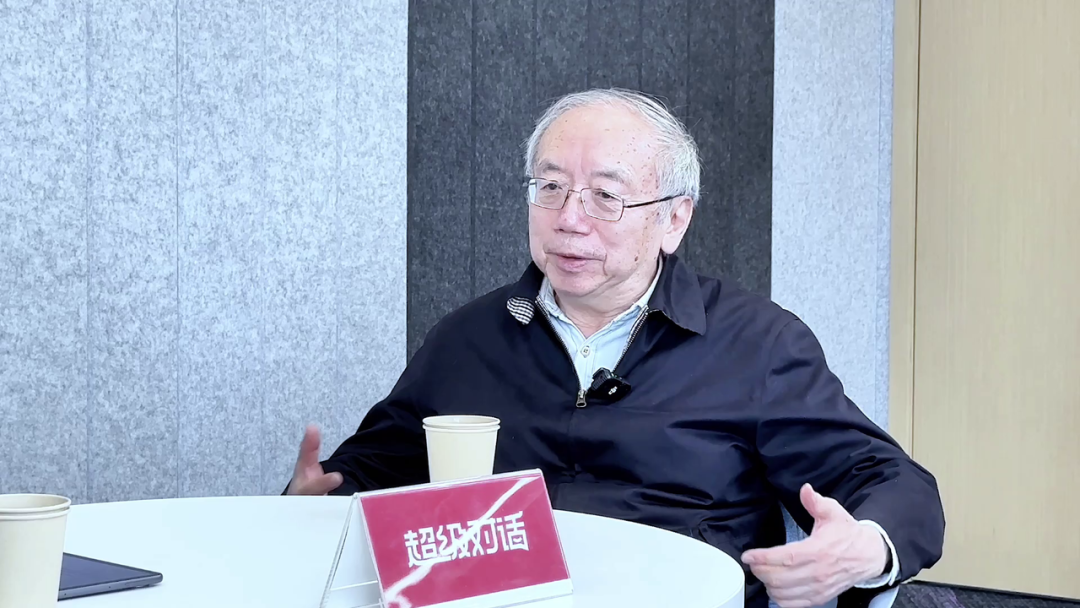
However, amidst competition, it's possible to strike a balance where competition and cooperation coexist, fostering mutual benefits. Therefore, cooperation is essential within the competitive landscape. The global economy functions as a vast division of labor system where each entity specializes in certain productions. China has strengths in manufacturing but also weaknesses, such as in the service sector. Collaboration allows us to acquire what we lack, thereby mutually benefiting each other.
Seeking cooperation opportunities amidst competition and nurturing such collaborations leads to win-win outcomes.
Vivi: Ultimately, it's a symbiotic relationship where we rely on each other.
Wang Xiaolu: Chinese people are adept at learning from others and identifying areas for improvement after learning. Although we may initially follow others, we often surpass them through our own enhancements. However, leading global technological innovation remains a challenge beyond our current reach.

Vivi: The World Artificial Intelligence Conference (WAIC) this year was quite intriguing. Simultaneously, a hackathon in Hangzhou featured high school students researching robots, coding, and exploring new possibilities. Professor Li Zexiang's XbotPark Robot Base encourages university students to initiate projects, which they present upon graduation, potentially securing new funding and commercial prospects. I find this highly encouraging. When I spoke with a former DJI colleague in Shenzhen who now runs his own startup, he mentioned that DJI instilled in them the belief that China possesses innovative capabilities, logical frameworks, and Standard Operating Procedures (SOPs) to create innovative products. I see scattered or widespread investments driving significant changes.
Wang Xiaolu: China has reached this stage by starting with simple labor-intensive products, gradually learning from others, and now venturing into technological innovation—a vast field awaiting exploration.
Vivi: Absolutely, especially with our well-established industrial ecosystem enabling end-to-end production. If we combine this with innovation, we'll achieve tremendous growth. Speaking of innovation, AI deserves another mention. During this year's Spring Festival, DeepSeek brought exciting news, and globally, AI is gaining attention. My observation, given my focus on globalization, is that DeepSeek has spurred developments in robotics and embodied AI, fostering closer interactions and technical exchanges among Europe, India, and the U.S. Do you think AI will accelerate industrial structural changes?
Wang Xiaolu: My sense is that we're on the verge of a new, profound industrial revolution driven by AI. What does the AI revolution entail? It suggests that nearly 99% of jobs we can imagine will eventually be replaceable by AI, potentially performing better than humans. Isn't this a significant industrial revolution and leap?
Moreover, efficiency could multiply, and costs could significantly decrease.
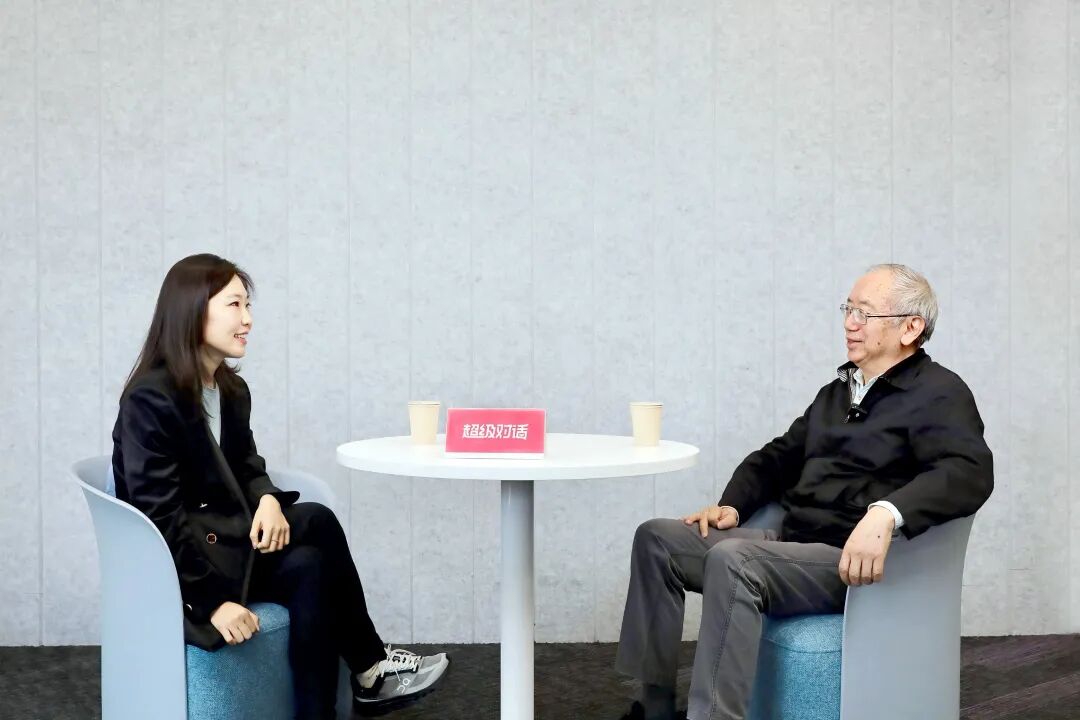
Vivi: Will AI become a growth engine for China's economy?
Wang Xiaolu: I believe so. However, this relies on continuous innovation to explore development paths, and it will also pose substantial challenges.
Vivi: One last question: Given AI's impact, what preparations do we need to make?
Wang Xiaolu: Traditionally, economics has emphasized full employment as a key goal—achieving rapid economic growth to create more jobs. However, if AI replaces many human tasks, leading to high efficiency and substantial value creation, it might support a shorter workweek (e.g., two or three days) while leaving many without employment. How should we prepare?
A robust social security system is crucial. Preparations should begin now, especially given the looming threat of a larger unemployment wave. Governments must act promptly to establish comprehensive social security frameworks—a proactive approach, as the challenges are already upon us.
Additionally, significant changes await businesses and individuals. The norm of seeking stable employment may shift towards more flexible work arrangements. You might not hold a permanent position in one company, earning a fixed salary with daily attendance. Instead, employment could become elastic, with periods of activity and inactivity within a month. You might become a freelancer, breaking free from traditional employment models.
Furthermore, previously clear distinctions—employment as paid, value-creating work versus unpaid activities like volunteering or personal hobbies (e.g., painting, music, dance)—may blur. In the future, fixed job opportunities might diminish, leaving more leisure time to pursue interests. Some hobbies could become value-generating, such as earning income from teaching based on expertise or gaining value from research and contemplation.
Vivi: It sounds like a future filled with more poetry, distant horizons, and value creation.
Wang Xiaolu: Indeed, it will foster new value creation, encouraging more people to explore and innovate, leading to new rewards and values.
Vivi: It doesn't sound as pessimistic as feared but rather promising. Thank you, Professor Wang, for your insightful sharing.







